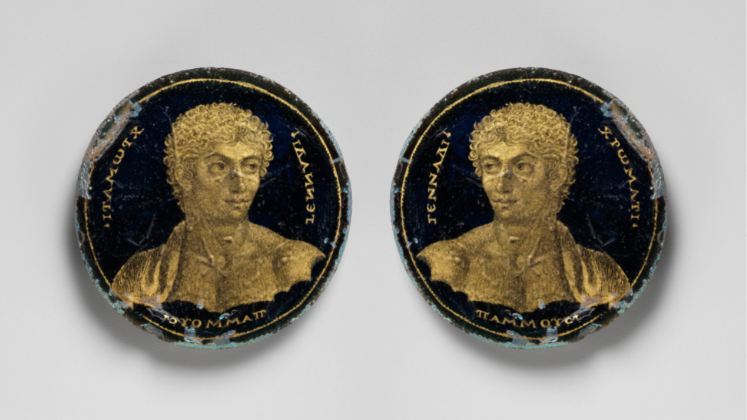From esoteric passion projects to mainstream talk shows, academic podcasting, like the medium as a whole, has grown considerably over the past decade. Drawing on interviews with all kinds of academic podcasters as part of his new book, Ian M. Cook argues the future of the academic podcast is still undecided and that it continues to occupy an indie niche outside of mainstream scholarly communication.
Scholarly podcasting is a thing. There lots of scholars doing it, but why are they doing it, how are they doing it, and what are they doing? Is anyone even listening to this form of scholarship, and is it even scholarship at all? These were some of the many questions I had when speaking to the 101 academic podcasters I interviewed for Scholarly Podcasting: Why, What, How?
There are, of course, many different ways to think of scholarly podcasting beyond its technical definition as digital audio content that can be subscribed to. You might think about the way knowledge is created or crafted, how it is communicated, whom it is made for, and how all these overlap. Some podcasts are carefully crafted audio pieces that draw on the affordances of sound and the traditions of radio documentary; others are conversations between academics and really only for fellow academics; some are a key part in a researcher’s knowledge creation process; whilst others are more about communicating research to a wider public. And many are a little bit of all of these.
Many of the scholarly podcasters I spoke with were keen to point out that podcasting is not inherently more or less legitimate than other forms of scholarly communication.
Thinking with scholarly podcasters who make content for an audience beyond academia is fascinating. They celebrate being able to publish complex ideas without gatekeepers, the thirst for this complex knowledge amongst publics, and what possibilities this opens up for academic practice more broadly.
Many of the scholarly podcasters I spoke with were keen to point out that podcasting is not inherently more or less legitimate than other forms of scholarly communication. As Dallas Rogers, from City Road Podcast told me, “We teach people in our classes, we write research papers, we go to conferences, we talk in the media, and we also now make podcasts. And I don’t think that any one of those is more or less valid than the other. They’re all just different modalities for communication. So, therefore, I think podcasting is absolutely core business, like absolutely core to what we do.”
Speaking to a public without an editor acting as a mediator is a massive appeal for many academics. As Michaela Benson, sociologist and podcaster with Brexit Brits Abroad and Who do we think we are? argues, “I think it’s also fair to say we’re working in a landscape where the public are asking questions about academic research. You know, how to produce academic research for the public in responsible and ethical ways is something that I really think we need to take control of. There’s a real tension: you want to communicate complex understandings, but this is a public landscape that doesn’t encourage complex understandings.”
This points to how the phenomena of scholarly podcasting has upended conceived wisdom about audiences’ desire for intellectual content with many listeners wanting deep dives into topics and themes. As Marty Martin, co-host of the Big Biology Podcast explains, “We used to go to extremes to try to appeal to ‘Joe and Jane public’ such that the first 10 episodes we used to produce a long- and a short-form. The short form was really demanding on us. It was very distilled. We would spend hours trying to perfect a script, to communicate really complicated types of things that we would discuss with our guests. And we stopped doing that, not because we didn’t want to get the audience, but it blew us away when we looked at download statistics and the long-form were something like twice over preferred to these short-form ones.”
Not all scholarly podcasts will find massive audiences: some can have tens of thousands, most just a few hundred (though even an audience of a few hundred is more than most conference keynotes get). Nor do most academic podcasters advocate chasing numbers as making a scholarly podcast can have multiple purposes beyond speaking to publics, from working through ideas, to data collection, to creating an academic community. Rather, it’s a recognition that in a world where managerial pressure seeps into our writing, mainstream media oversimplification and hostile anti-science discourse, that for many I spoke with for the book there is something wonderfully freeing and exciting about scholarly podcasting. As Neil Fox, co-host of the The Cinematologists puts it, “Okay, let’s be utopian. I think it can liberate academia. It can provide a space to do the things that academia says it wants to do. It’s actively a way to reach outside the walls of academia in terms of where your content goes and where your knowledge goes. It’s an active way to cultivate and welcome diverse voices, either through decolonising the curriculum or actively employing people from different backgrounds and celebrating and supporting their work and their voice and their perspective. I think it’s limitless potentially.”
The hope, meanwhile, lies in podcasting’s DIY, low-tech, hyper-niche foundations
This limitlessness gives me both hope and despair when I think about the future of scholarly podcasting. The despair comes from the ways in which some strands of scholarly podcasting are aping the ‘mainstream’: rather than ex-Presidents and ex-Royals scooping up millions from Spotify and topping the charts with their celebrity, we have Rectors and Vice Chancellors using their university’s prestige and research funding for podcast vanity projects. The hope, meanwhile, lies in podcasting’s DIY, low-tech, hyper-niche foundations: scholars are going to keep on podcasting as a creative means of doing scholarship in ways that exceed constrained notions of career advancement or impact, and that remake the form and delivery of research. Scholarly podcasting hasn’t (yet) been consumed by the academic publishing machine of points and rankings and, as such, its future can be whatever we collectively want it to be.
Note: interview excerpts have been cut and slightly reworded to fit the format. Readers may also be interested in exploring LSE’s own podcast, LSE IQ.
The content generated on this blog is for information purposes only. This Article gives the views and opinions of the authors and does not reflect the views and opinions of the Impact of Social Science blog (the blog), nor of the London School of Economics and Political Science. Please review our comments policy if you have any concerns on posting a comment below.
Image Credit: LSE Impact Blog via Canva.








1 Comments